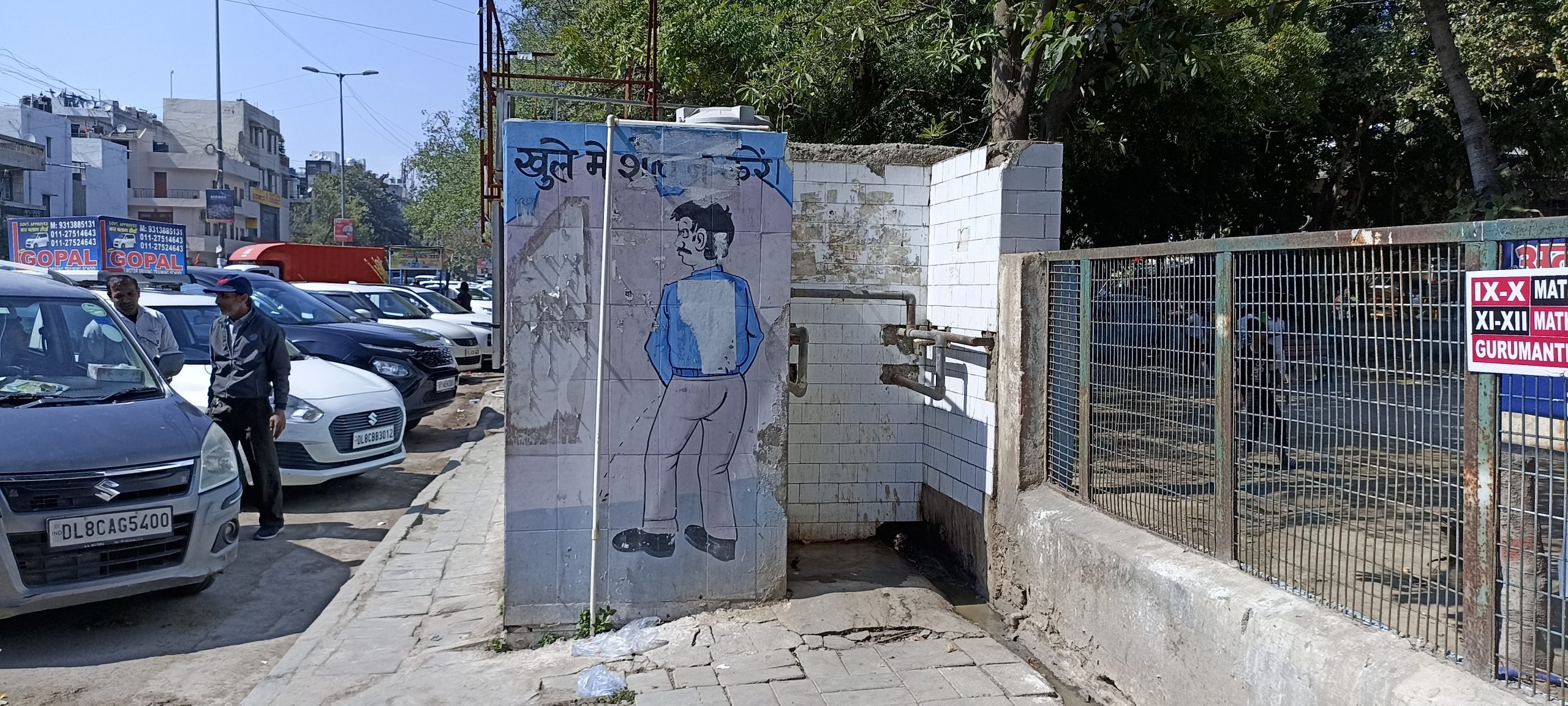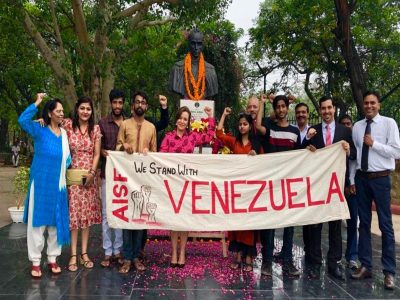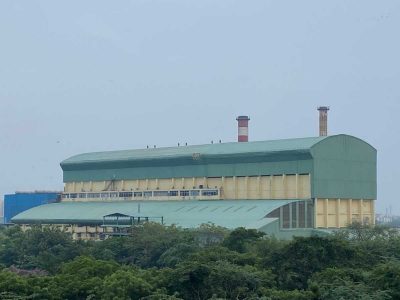On February 27, the Delhi High Court passed an order directing the Municipal Corporation of Delhi (MCD), the New Delhi Municipal Council (NDMC) and the Delhi Development Authority (DDA) to conduct a third-party audit of their toilets. The order was passed in lieu of a Public Interest Litigation (PIL) filed by Jan Sewa Welfare Society.
Seated behind the counter of his store selling automobile seat covers, Arvind Sharma kept huffing in dehydration. He was controlling the urge to visit a DDA public toilet and avoid any unnecessary infection.
“I don’t ever go to the bathroom here. The entire day, I just try to control my thirst so that I don’t have to visit the washroom at all,” he said.
Advocate Ajay Agarwal, who is representing the Non-Governmental Organisation (NGO), noted that toilets in Pitampura’s Rama Road and Rama Market, Rohini’s Naharpur Market, Sector 7’s Pocket B, and Sector 8’s DDA Market, and Saraswati Vihar’s Green Belt and C Block, are in complete disarray.
Sharma, one of the many shop owners at Naharpur’s automobile accessories market, is faced with the dilemma of ‘to hydrate or not to hydrate’ because of the state of the solitary public toilet.
The toilet is as dirty as it gets with no way of the wastes to get drained out owing to the absence of a sewage connection. Moreover, even with the tank, which is placed above and is jutting out, the toilet remains deprived of any water source.
From the common public to the usual washroom attendees, the shop owners, they all face the same dilemma. Multiple complaints to DDA authorities have fallen on deaf ears to the point that they have all but stopped complaining.
“We did complain but nobody really listens to us. Nobody here has much of a choice; we need to go to the washroom but it has reached such a dreadful level that even the main sewer connection does not work. Somebody comes in the morning for maintenance, and drains the urine out manually,” said Braham Jeet, owner of a shop selling car accessories.
According to Jeet, the toilet is bereft of any water supply for the past two years.
Unlike the shop owner running a grocery store nearby, a lady on the condition of anonymity, added that unlike men, she has to control her urge to urinate.
“There is no separate toilet for women here. We don’t even have a choice of visiting a washroom if we have to. Normally, I return home for a bit to relieve myself but that also means that I am losing out on business,” she said.
A similar sight can be seen near Sector 7’s Pocket B, adjacent to a humongous public park where a row of shops stands without any toilet nearby.
“Who will listen to us? We have even told the MCD authorities here about this but nobody has heeded our calls,” said Vinay Goel, the owner of a garments store near the public toilet.
He informed that it was mostly due to the trash composting area, which was shut recently that the toilet is in such disarray.
According to Goel, the toilet was set to be refurbished. However, that idea was kept on hold.
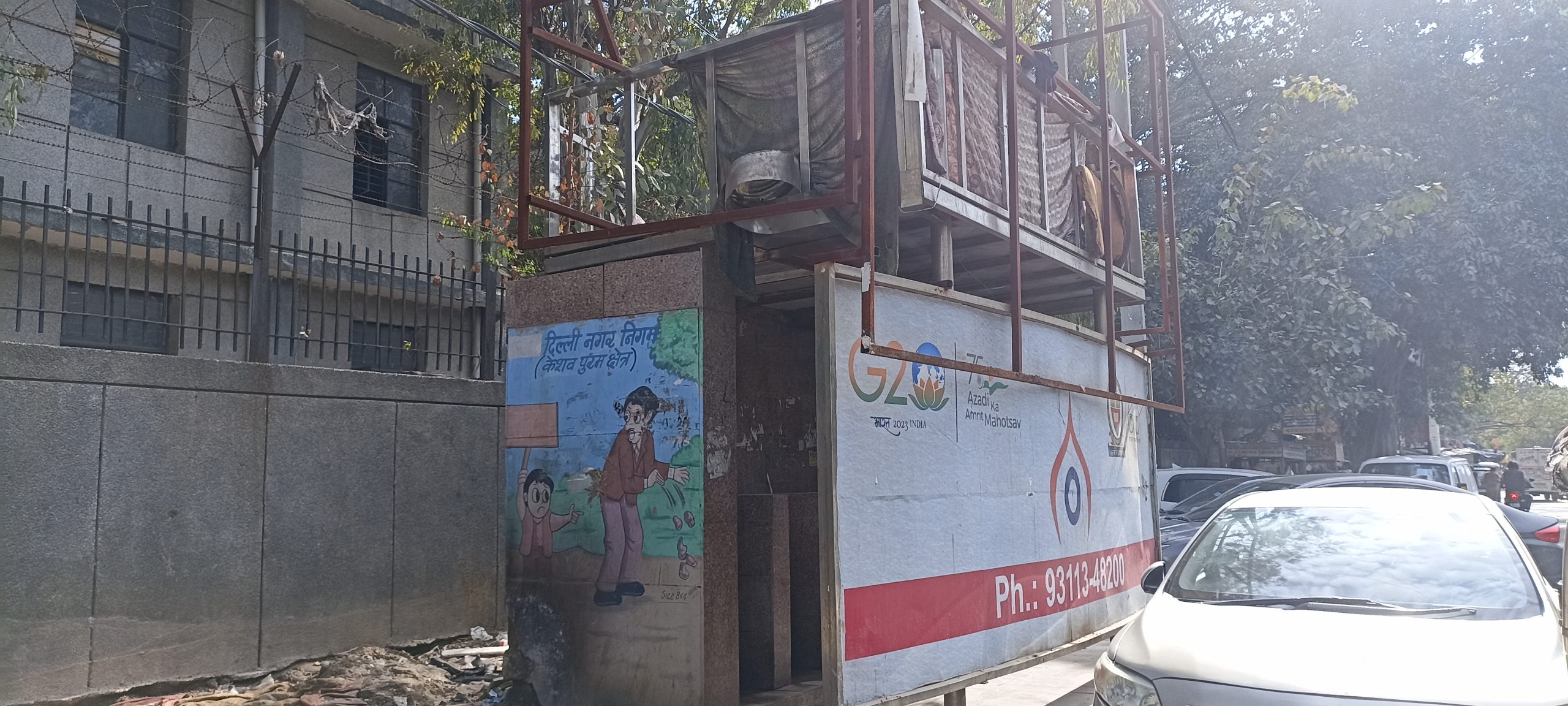
“Presently, they have been thinking of tearing down the trash composting area but it has already been two years and nothing has happened. Without that, the area will always remain dirty because people view the entire area as a dumping ground,” he said.
“Nobody really cares about this toilet’s upkeep. The shopkeepers here and the staff, we don’t really have any other choice than to use the bathroom. I try to keep the visits to a minimum since one staff member was infected with some urinary infection after using the toilet,” claimed the owner of a garments shop.
Unlike the toilet at Naharpur, this one did not keep up any pretence of having access to water. Devoid of any tank on its roof, the said toilet has never seen any semblance of access to water, and is also without any connection to the main sewage channel.
Presently, the stagnant waste-water is collected manually by the maintenance personnel and disposed off through certain channels. However, according to Goel, the person who maintains the toilet visits only once a week.
“Nobody wants to make things better here since it is happening outside their homes. Everybody just wants to clean up their homes but will not move a muscle to change things outside,” he added.
On the other hand, the hardware hub of Rama Market in Pitampura, has also been affected by a similar toilet endemic with the solitary public bathroom being a hub of diseases.
According to a shopkeeper who wanted to remain anonymous, one of his children had fallen sick after visiting the toilet.
Running parallel to a rickshaw stand, the stench of the ill-maintained washroom can be felt from afar, although, it functions much more efficiently than the other toilets.
Jugnoo Arora, the President of Rama Market Traders’ Association, said that they collect money for maintenance of the toilet from every shop owner under the directions of the MCD.
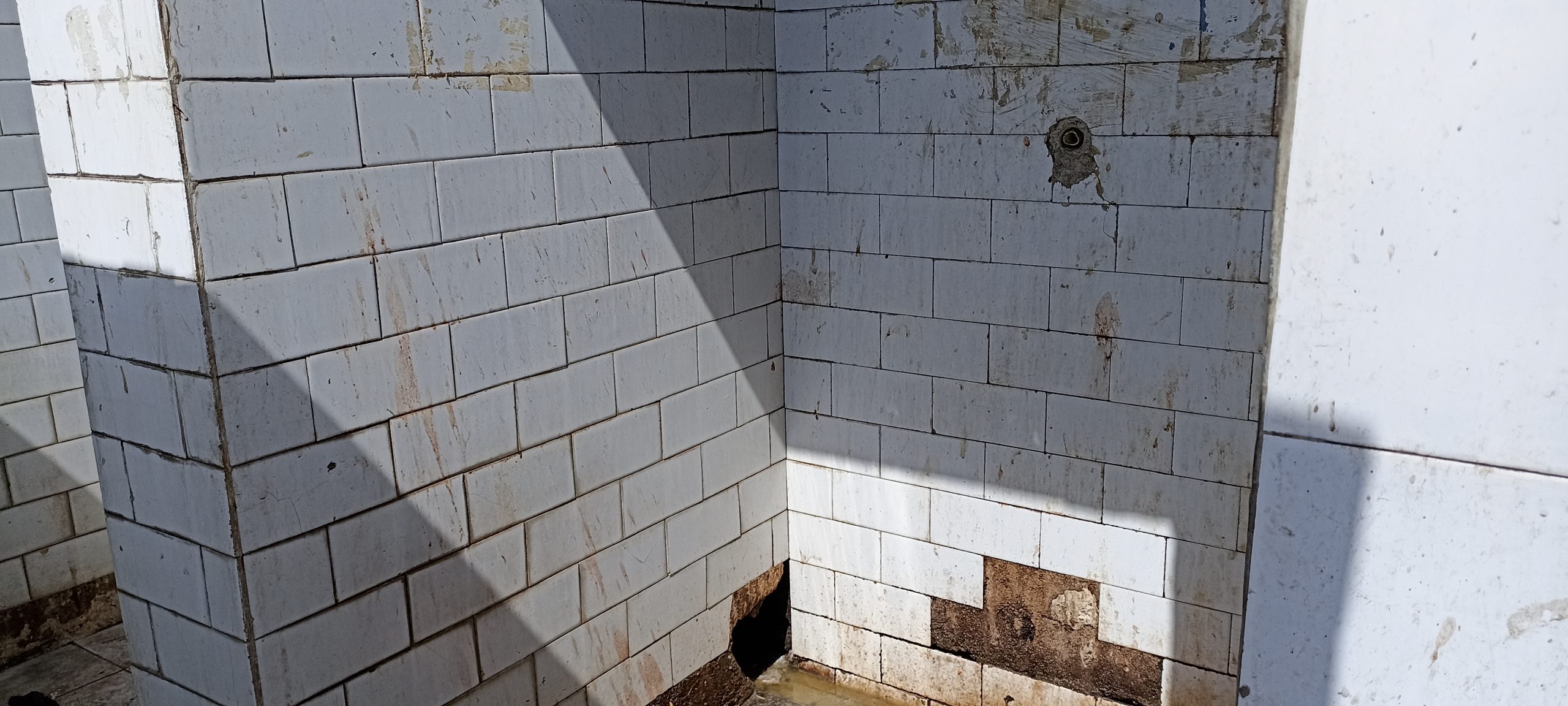
“The toilet still remains unkempt and dirty. I have tried to hold the person responsible for hygiene accountable but till now, no change has been made,” he said.
“The tank works sometimes, with a haphazard supply of water. As they say, it comes and it goes, but mostly, there is some supply of water in the morning. We still have to go with our noses covered because of the terrible stench that stays all the time, and it is not like we do not pay for the maintenance,” said Roshan Lal Jain, the owner of Arihant Plywood.
According to Jain, all shop owners have to contribute Rs 1,600 on a quarterly basis for the maintenance of the toilet.
The case is listed for hearing on May 1 in front of the bench led by acting Chief Justice Manmohan and Justice Manmeet Arora.

